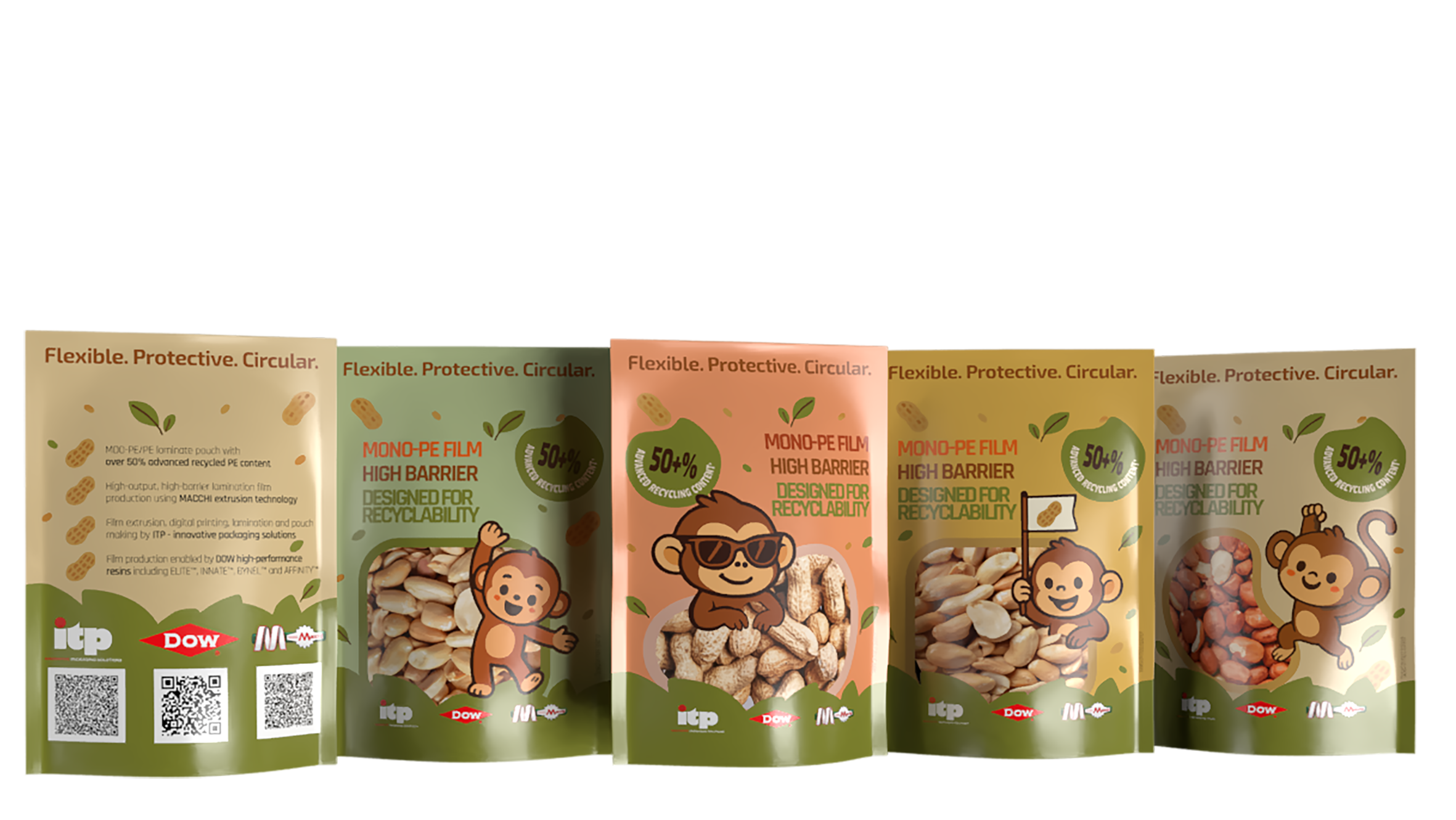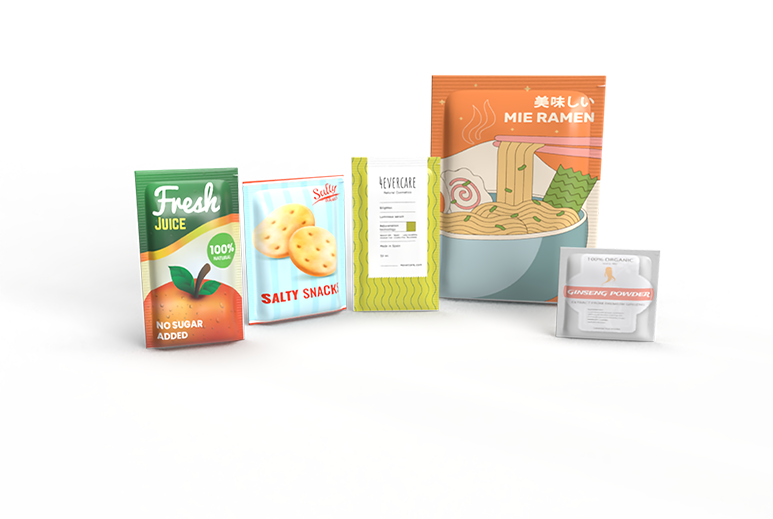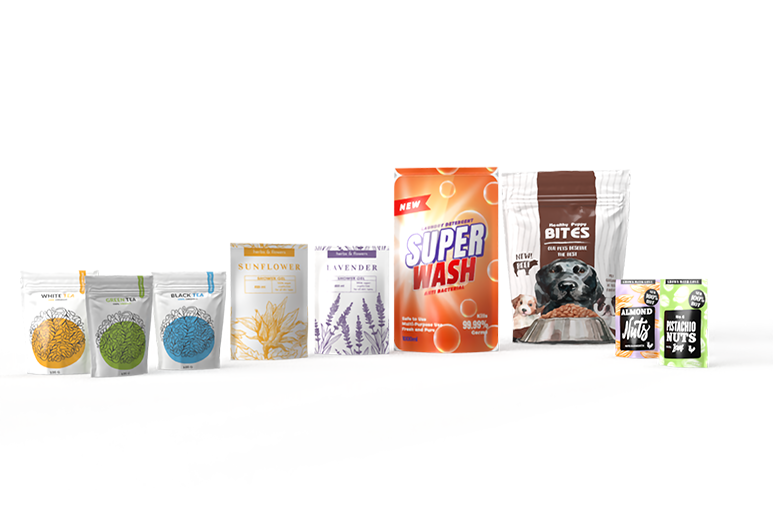Dow, Macchi and ITP present new mono-polyethylene pouch prototype with more than 50% advanced recycled content at K 2025

- The prototype pouch is designed for recyclability and suitable for food packaging due to its high barrier properties against gas and moisture.
- The snack pouch prototype contains more than 50% recycled content from advanced (chemical) recycling, supporting packaging circularity without compromising performance or food safety.
- Developed through close value chain collaboration, ITP managed film substrate selection, printing, lamination, and pouch making; Macchi provided high-performance multilayer extrusion technology; Dow supplied advanced polyethylene (PE) resins combining processability and functional performance.
- The new pouch will be officially presented at K 2025 in Dusseldorf, with samples available at Dow and Macchi booths from 8 to 15 October 8 to 15, 2025.
Three key players in the packaging supply chain – Dow (NYSE: DOW), Macchi, and ITP – have joined forces to develop a circular solution for flexible packaging: a mono-polyethylene (mono-PE) pouch designed for recyclability, containing over 50% recycled plastic content from advanced (chemical) recycling based on a mass balance credit approach.
The incorporation of advanced recycled content enables increased uptake of recycled content into technically challenging or highly regulated applications like food packaging, something not possible today at scale with conventional mechanical recycling, thus minimizing the reliance on virgin resources. Incorporating advanced recycling content also ensures that packaging materials are safe for direct contact with food products, providing consumers with peace of mind on food safety while protecting against gas and moisture.
The pouch also proactively addresses the upcoming EU Packaging and Packaging Waste Regulation (PPWR) recycled content quotas, which mandate specific recycled content targets for all plastic packaging by 2030 including 10% for food contact-sensitive applications. This collaboration demonstrates the ability to incorporate higher volumes of advanced recycled material without compromise on performance or safety.
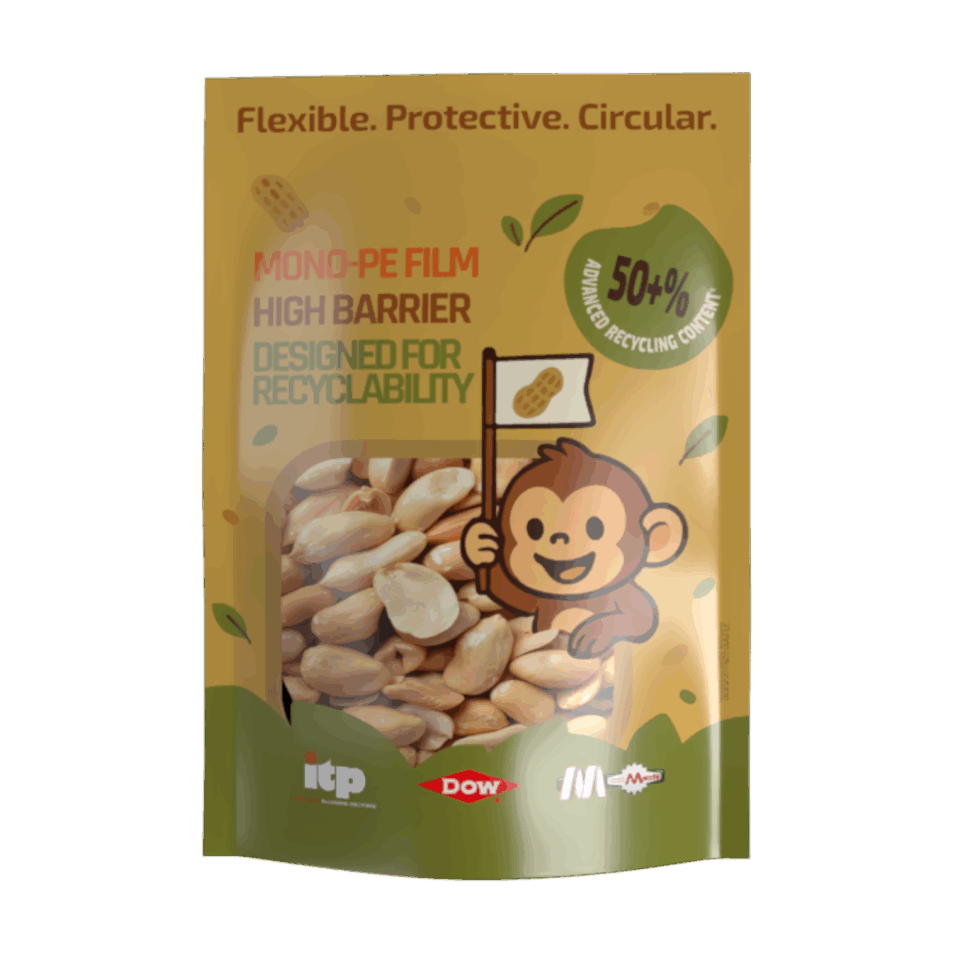
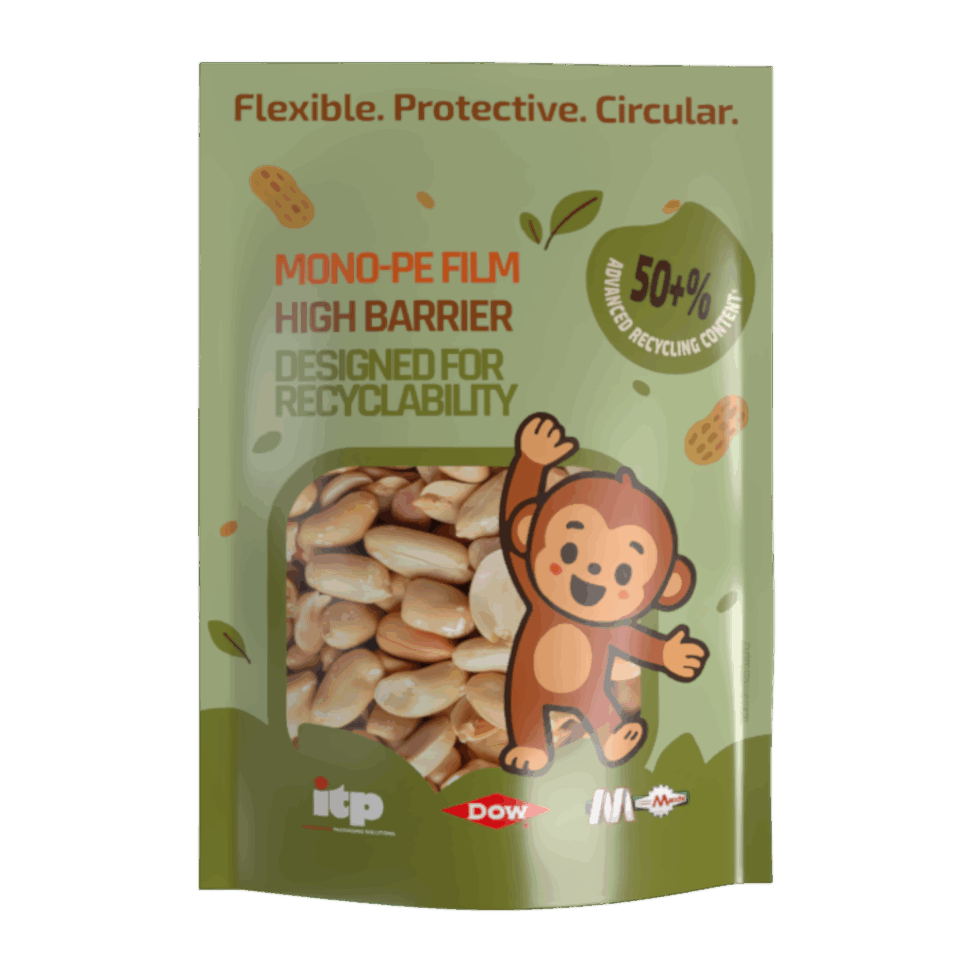
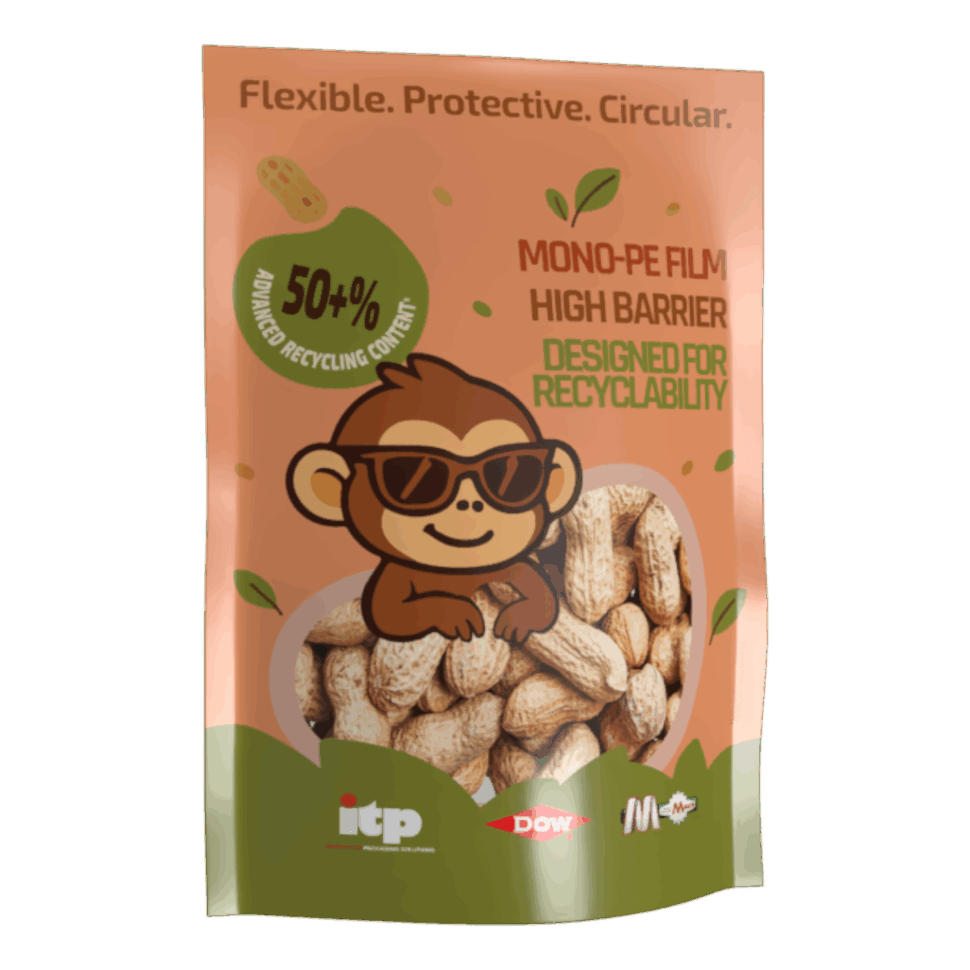
A three-way collaboration to help drive innovation in packaging
ITP SpA, producing high-quality, sustainable PE films for food and industrial packaging, managed film substrate selection, digital printing, lamination, and pouch making.
Macchi, a leading manufacturer of blown film extrusion lines, provided high-performance multilayer extrusion technology.
Dow, a global materials science company, contributed advanced PE resins – including INNATE™ Precision Packaging Resins, ELITE™ Enhanced PE Resins, AFFINITY™ Polyolefin Plastomers, and BYNEL™ Adhesive Resins – combining excellent processability with top-end functional performance.
“Through this collaboration, ITP highlights its expertise in PE extrusion to provide high-performance films with advanced recycled content, fully compliant with upcoming PPWR requirements and ready to meet future market challenges,” said Carlo Poggi, Managing Director of ITP.
ITP, an Italian family-owned company with over 50 years of expertise in flexible packaging, specializes in PE film extrusion with advanced single-bubble and triple-bubble technology. Thanks to its fully integrated production, ITP ensures rigorous control across every step of the process. This end-to-end oversight enables the optimization of film recyclability without compromising the technical performance required in the food & beverage sector.
As a result, ITP delivers high-performance Mono-PE multilayer structures, fully aligned with the market’s growing demand for sustainable packaging — combining innovation, safety, and the excellence of Made in Italy.
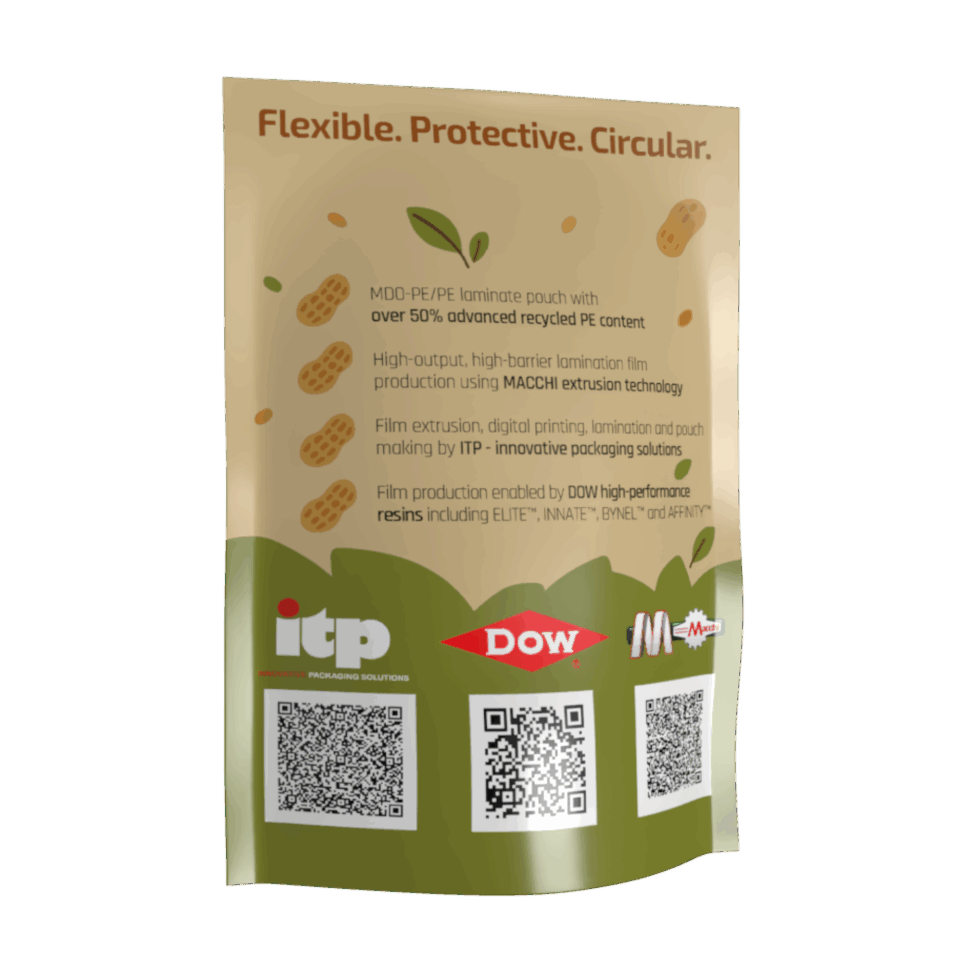
Premiering at K 2025
The new pouches will be officially showcased at the upcoming K 2025, the world’s leading event for plastics and packaging technologies, in Dusseldorf from 8-15 October, on display at the Dow and Macchi booths.
Visitors will have the opportunity to see firsthand the outcome of this industrial collaboration and learn more about the technologies behind the project.
Advanced recycling of plastics: characteristics and advantages
Advanced recycling represents one of the most innovative frontiers for sustainable plastic waste management. Unlike mechanical recycling, which can degrade the properties of materials and limit their reuse cycles, chemical recycling breaks down plastics into their original monomers, producing secondary raw materials of comparable quality to virgin materials. This process allows for the recovery of a wide range of composites, which can be reused to produce new plastics or other chemical products.
The main advantages of advanced recycling:
- Recovery of high-quality materials, equivalent to virgin materials.
- Capability to treat complex or contaminated plastic waste that cannot be mechanically recycled.
- Increased circularity: materials can be recycled multiple times without loss of performance.
- Reduced dependence on fossil resources.
- Contribution to sustainability goals and European regulations on recycled content in packaging.
- Safety for sensitive applications, such as food packaging, thanks to the purity of the material obtained.
This technology is a key step toward a circular economy for plastics.
Contact us for more information:
